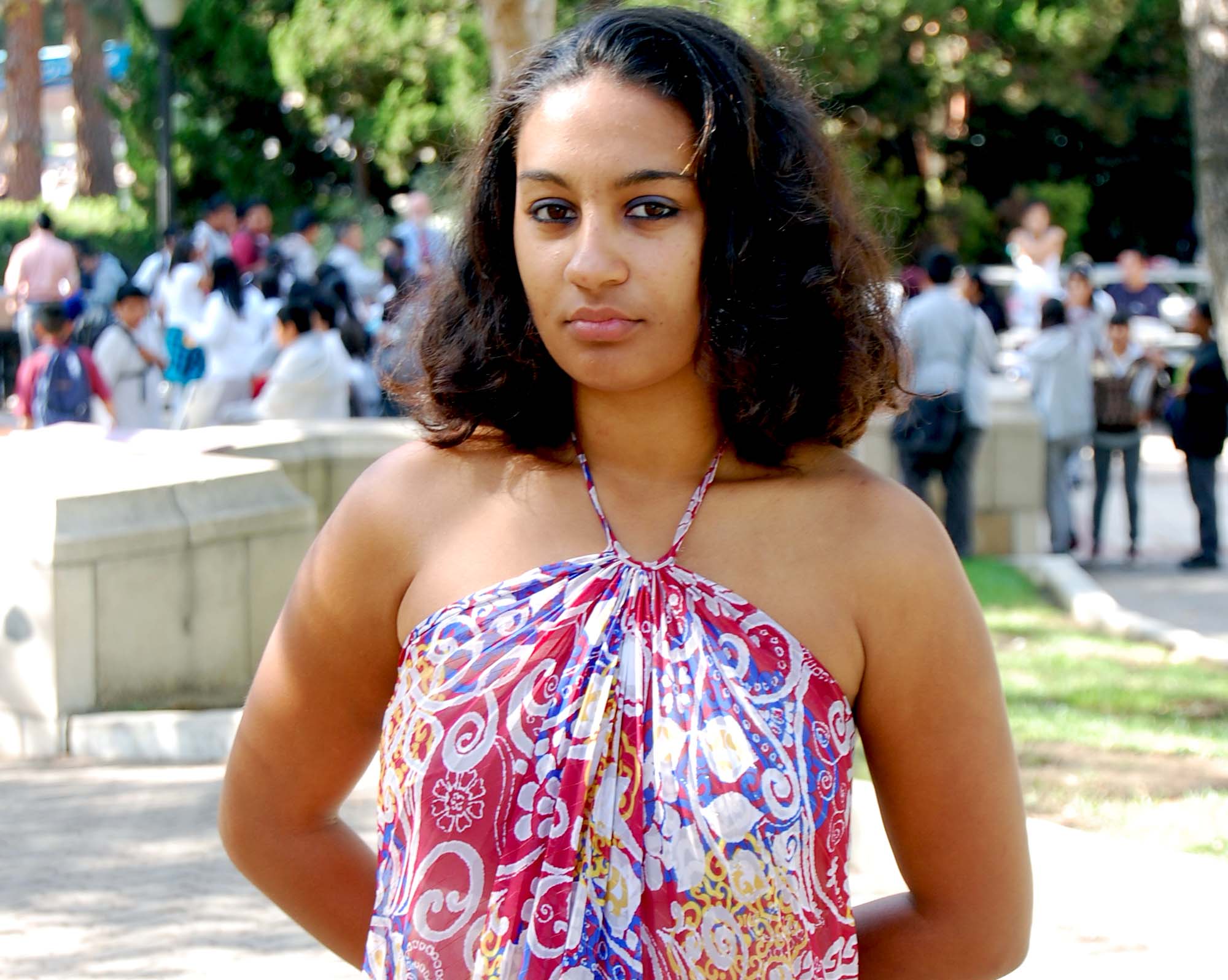When Jessica Nazar first arrived in Los Angeles, she was a 17-year-old emancipated minor with no friends or family in the city and no place to live.
Nazar said she had dreamt of coming to UCLA since the age of 10 and hoped that attending a school far away from her native New York would help her to escape the personal hardship she experienced there.
Now 20, Nazar has had to drop out of the university twice, because she is unable to pay out-of-state fees on her own.
She first dropped out spring quarter of her freshman year, when balancing work with her course load became overwhelming, Nazar said. She took a year off to live and work in Los Angeles, hoping she would then be able to establish residency.
After re-enrolling in the spring of the following year, however, Nazar found that her petition for residency was not granted, and she was still considered an out-of-state student.
According to the Web site for the UCLA Registrar’s Office, students under 24 must be financially self-sufficient for two years before gaining residency.
This means that to establish residency, Nazar will need to pay back a loan she co-signed her freshman year in full, she said.
Nazar said she made numerous appeals to the registrar and financial aid offices, hoping that her unique circumstances as a student detached from her family and paying student fees on her own might make her an exception to residency policies.
However, the university was unable to make an exception, and Nazar said she was forced to drop out for the second time at the end of the quarter.
Nazar said she was devastated when she realized she would have to leave school once again.
“It felt like my world was crumbling down,” she said. “I felt like I belonged here from day one, and I thought it was the only thing I could always count on.”
Though not currently enrolled, Nazar said she has remained involved in many campus activities, and she hopes that after this year she will be able to establish residency and return to school.
Nazar said that she is unsure of what she will do if she does not achieve residency, because she no longer has residency in New York and would not receive in-state fees at the state’s schools if she were to return.
“All I can do is wait a year,” she said.
Financial aid director Ron Johnson said that financial struggles are not uncommon among out-of-state students.
“First and foremost, financial aid is primarily targeted to resident students,” he said.
Out-of-state students can receive financial aid, but it is based only on the resident budget and does not cover any portion of non-resident fees, Johnson said.
He added that even out-of-state students with extenuating circumstances, like Nazar, are limited in the aid they can receive from the university.
“They are pretty much judged on the same criteria,” he said.
Johnson said it is a common problem for students like Nazar to misunderstand the university’s residency policies, leading to further financial struggles when they learn that establishing residency may take longer than they expected.
Johnson also noted that current economic conditions are making it even more difficult for out-of-state students to fund their education, because private loan programs are tightening their credit restrictions.
“That means that a large resource that has been available for students in the past is now limited,” he said.
In light of these obstacles, Johnson urged out-of-state students to carefully consider their decision to enroll at UCLA.
“We want gifted students to come to UCLA, but we definitely don’t want to put them in a circumstance of instability,” he said.
Christopher Geno, who came from Minnesota as an out-of-state student last year, said that if he had been aware of the difficulties he would experience in establishing residency and paying non-resident fees, he might have reconsidered his decision to come to UCLA.
Geno came to UCLA hoping that access to the Los Angeles music industry would help him kick-start his career as a musician.
Geno said he participated in a number of campus activities his freshman year, even performing in May’s Spring Sing event.
“It really became like a big family and a big community,” he said.
Geno said he did receive some financial aid, but it was not enough to allow him to attend the university for more than one year while continuing to pay non-resident fees.
After realizing he would need to be financially independent for two years before establishing residency, Geno said that he was forced to drop out.
Geno is currently saving money and working on his music and will enroll at Santa Monica College next semester, he said. Though he keeps in touch with his friends from his first year, Geno said that it has been difficult to leave his life at UCLA behind.
“Sometimes I just feel like I’m stuck here while life sort of goes on without me,” he said.
For non-resident students like Nazar and Geno, there may by services outside of university financial aid that could help them to fund their education, said Enku Gelaye, executive officer of the Office of Vice Chancellor of Student Affairs.
Gelaye said that the Emergency Crisis Team, a support committee consisting of staff members from across campus, as well as the recently established Bruin Resource Center could be major sources of assistance to these students.
Students can turn to these groups to help them identify work-study positions and scholarships they might not otherwise know about, Gelaye said.
They can also provide students with food vouchers and access to outside community resources such as food banks and shelters, she added.
Gelaye added that the university has an obligation to reach out to out-of-state students in need of assistance.
“Whether they are in-state or out-of-state, when they come here they are UCLA students, and they are part of the Bruin family at that point,” Gelaye said.
